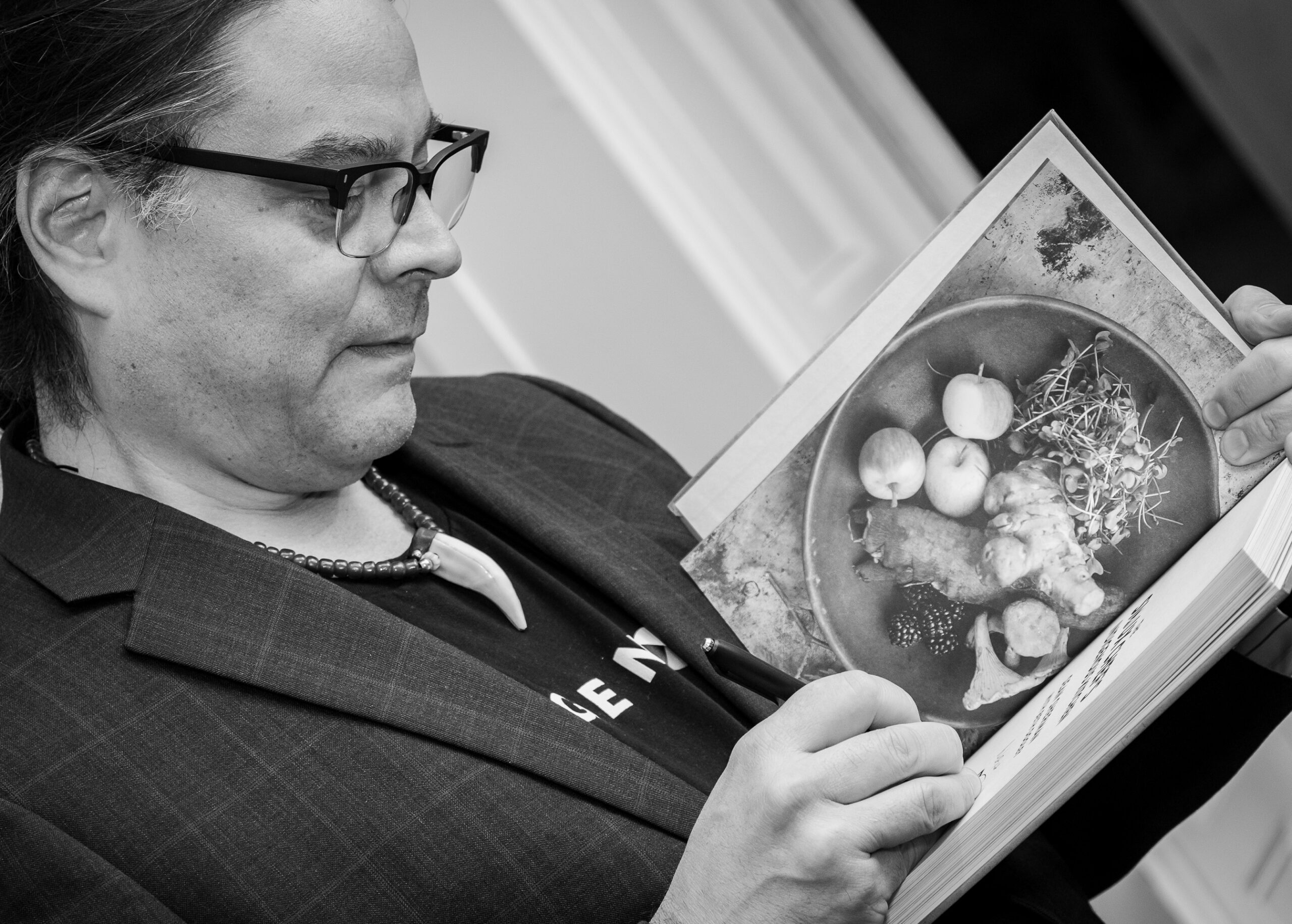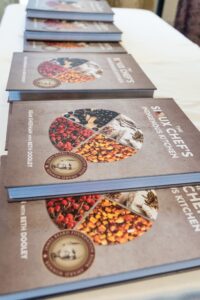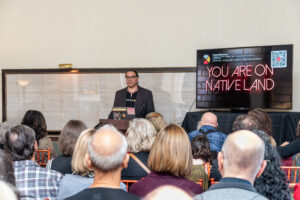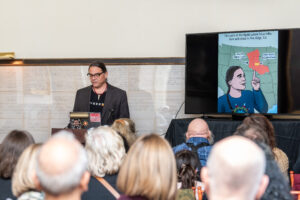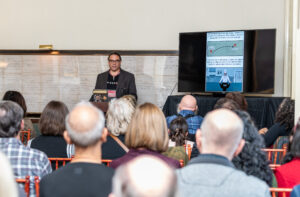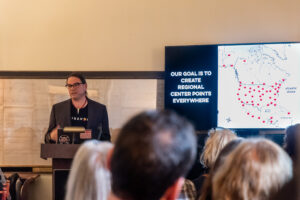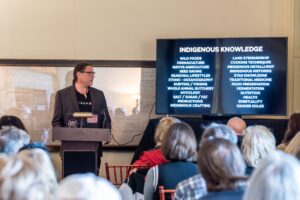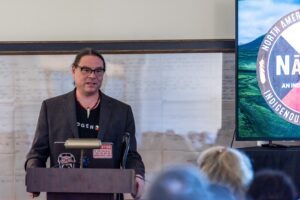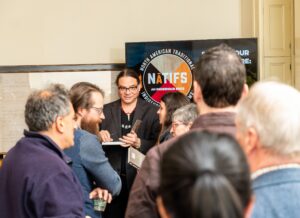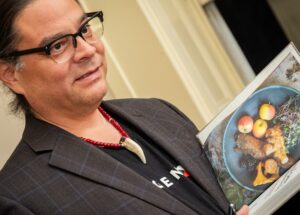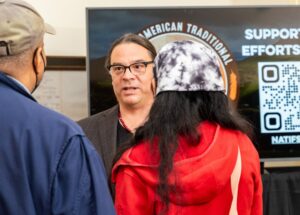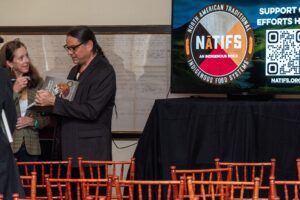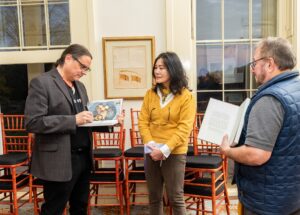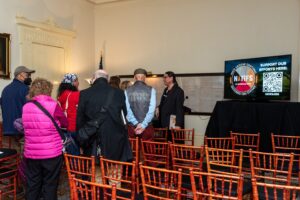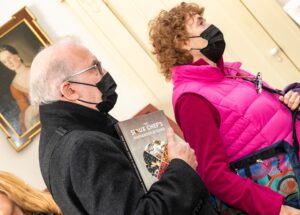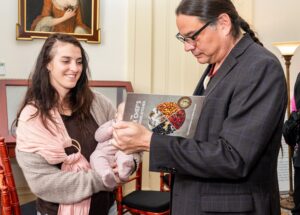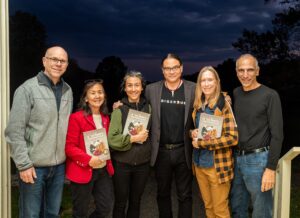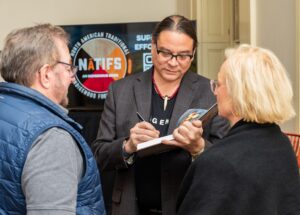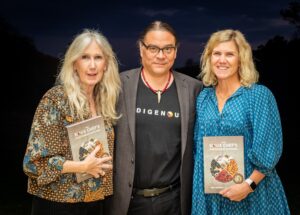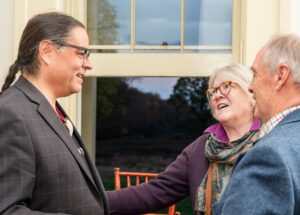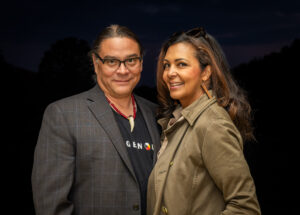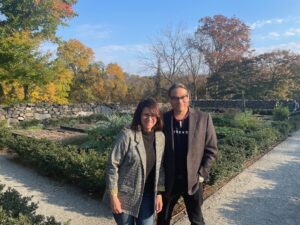
On November 5, Sean Sherman, the award-winning author and founder of North American Traditional Indigenous Food Systems (NĀTIFS), gave a riveting presentation at the Jay Heritage Center in Rye, New York. He spoke about restoring Indigenous foodways in North America. As part of his talk to an audience of more than 90 people, Sherman reviewed the impact of colonialism on Native peoples in America over the centuries. Using maps and timelines, he referenced the myriad and chronic challenges to tribal autonomy and described the economic and health crises affecting Indigenous groups.
What are Indigenous foodways? They are customs and culinary practices. Sherman underscored how the occupants of Native Lands had been systematically deprived of more sustainable nutrition models for themselves and their families. What Indigenous foodways were erased, compromised or diluted by colonialism? Sherman gave numerous examples. Seed-saving, mycology, permaculture, use of wild foods, land stewardship, hunting and preservation of food are all skills which he hopes to help reintroduce to young people in both indoor and outdoor food classrooms.
Sherman’s message was sobering yet hopeful. He shared his vision for creating a new food system that generates wealth and improves diets in Native populations through food-related enterprises. He encouraged the audience to reimagine a nonprofit initiative to address past injustices. He suggests training youth in entrepreneurship, establishing satellite Indigenous eateries and expanding regional access to traditional resources. Sherman’s restaurant Owamni shines an especially bright light on the path forward. In 2022, the James Beard Foundation named it the best new restaurant in the United States. “Every dish is made without wheat flour, dairy, cane sugar, black pepper, or any other ingredient introduced to this continent after Europeans arrived.”
Earlier in the afternoon, author and JHC Board member Lori Fontanes showed Chef Sherman new Jay Estate Gardens. The vegetable beds there are our own response to educating the community about the historic foodways that predated fast food and pre-packaged meals. Fontanes later moderated the Q&A session that followed the program. Chef Sherman also autographed copies of his best-selling book The Sioux Chef’s Indigenous Kitchen for many appreciative attendees. With Sherman’s goal to create regional educational center points everywhere, one can only hope that a Hudson Valley or Westchester Indigenous Food Lab is in our future! Watch the full program here.
Sherman’s talk built upon several other recent JHC programs about Indigenous history presented by historian Heather Breugl and O’Neill Fellow Fenway Donegan.
More about Sean Sherman
Photos by Kim Crichlow
